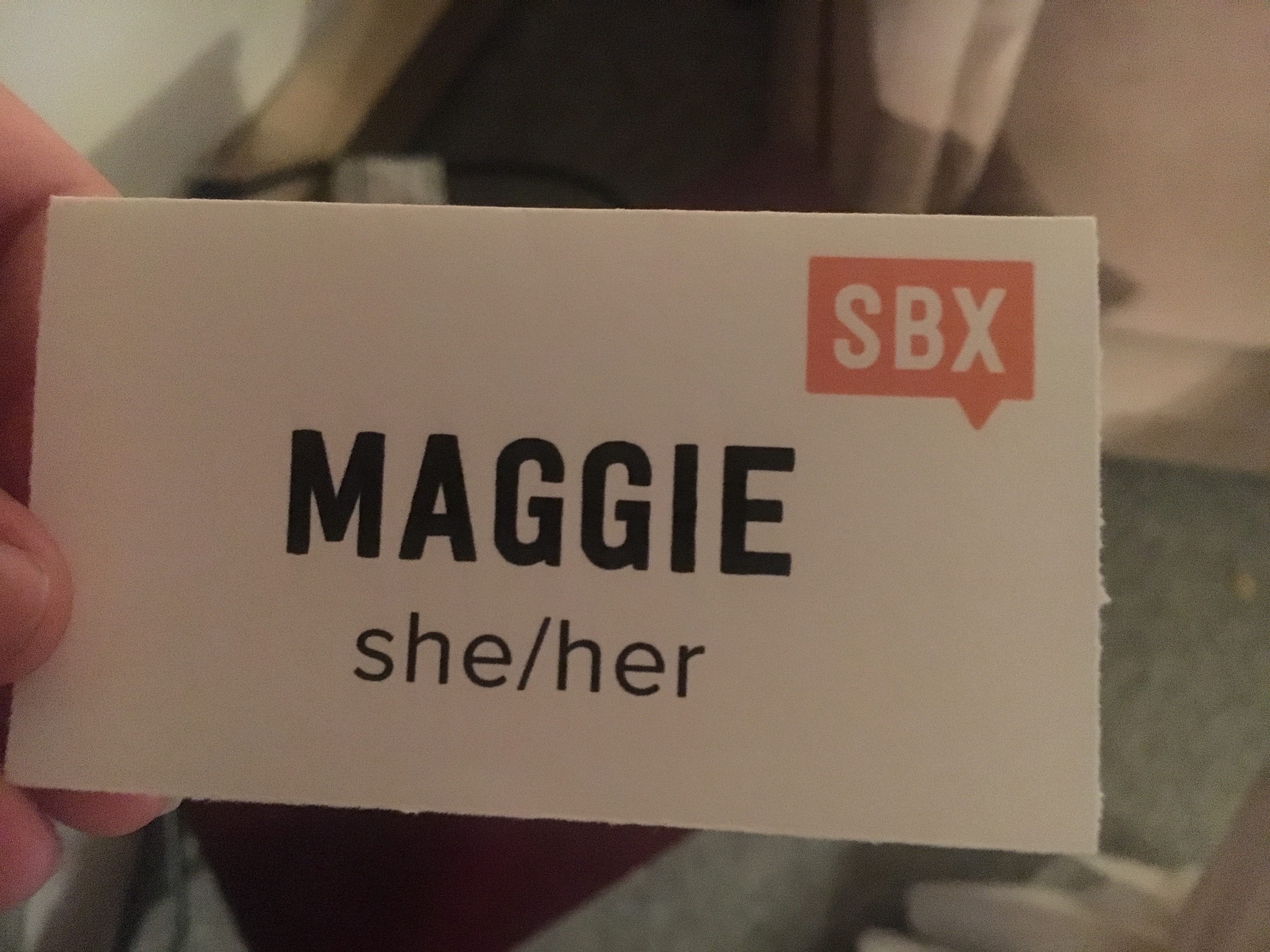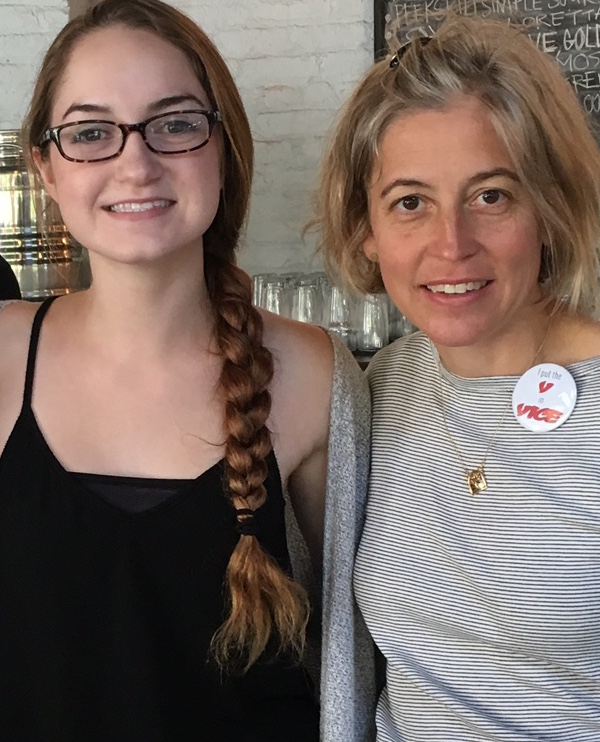Meet Maggie Kobelski ! Maggie is double majoring in Gender and Sexuality Studies and Molecular Biology. She hopes to be an Endocrinologist.

Describe yourself and why you wanted to attend Feminist Camp:
I’m a rising sophomore at Tulane. I am a Biology and Gender and Sexuality Studies double major and hope to one day work as a doctor in the endocrinological field. I am the president of two gender and sexuality clubs on campus: Queer Student Alliance and Queer Feminist Collective. I wanted to attend camp so I could learn more about different feminisms and hopefully apply that to my leadership at school.
Describe your favorite parts of the conference:
There was a lot I loved about the conference. First of all, I loved spending time with fellow feminists. It was empowering living with people who share that kind of loving ideology. Throughout the week we encouraged and uplifted one another, we pointed out each other’s strengths, we empowered each other. It was beautiful.
The leaders of the camp were sweet and knowledgable. From them I’ve accumulated much wisdom, especially with regards to an internal search for my strengths as a feminist and an organizer. I also found that there are a lot of ways to draw feminism into one’s career. We learned about feminist media, starting with VICE magazine’s documentary series on women. Our trip to VICE, as well as our visit to The Feminist Press, made me second guess my decision to not go into journalism. However, I was re-inspired to be a doctor by the Reproductive Health Access Project, where doctors can be trained to give aspiration abortions. In that organization, and in other organizations involving reproductive health, I saw the possible paths my career might take.
Highlight a speaker or a conference event:
One of the events I went to was a screening of Changing the Face of Medicine: Black Women in Medicine, a documentary directed by Crystal Emery. This event was especially important to me because I was able to learn about the field I want to be in from a lens that I don’t always look through; one that evaluates the field in terms of both race and gender. I was both made highly aware of my existing privilege as a white woman going into the medical field and was empowered and inspired by the doctors in the documentary. I think being able to see and understand my privilege is especially important considering my dual interest in medicine and helping to organize a productive and progressive feminist movement.
At the event both Crystal Emery, the director of the documentary, and Jocelyn Elders, the first African American surgeon general spoke about the film. One thing Elders mentioned before the film started was the saying, “you can’t be what you can’t see.” Both Elders and Emery spoke of the importance of being able to see what’s possible for oneself. The documentary, they explained, will change what black women are able to see in themselves. Although representation isn’t everything, it is certainly important.

Detail what you learned that you hope to never forget:
At Feminist Camp, I learned the importance of understanding my strengths, of understanding how I can be the best feminist organizer I can be, and the value of understanding how I can be the best feminist doctor I can be. I learned that there are a wide variety of important roles one can take in the greater feminist sphere. A good leader isn’t necessarily the one up front with the megaphone, and leadership is only one of many elemental parts of a solid movement. At the Reproductive Health Access Project, I learned that papaya abortions make me squeamish despite reproductive health being a major area of interest to me. In the same moment, one of the feminists leaders explained how sometimes the things I see as weaknesses (e.g. squeamishness), when embraced, can become my greatest strengths. After Camp, I spent my four hour ride home from New York thinking about the ways I can piece all of these strong/weak parts of me together, along with all of my varied interests (medicine, journalism) to make myself an effective member of the movement. Needless to say, I still don’t have it entirely figured out, but Feminist Camp brought me more than a few steps closer to my path.
Why should other students attend Feminist Camp:
Feminist Camp is both a great place to learn about feminism as well as about oneself. I think the way camp synthesizes its campers’ internal strengths/weaknesses with the external feminist world makes it an especially unique experience. Feminist Camp showcases many of the career paths a feminist can take, and instills in the minds of its campers that we all have a place in the movement.
Does this sound like something you might be interested in? Tulane undergraduate students can apply to NCI for funding to attend Feminist Camp. Email Betsy Lopez at elopez@tulane.edu for more information.
Responses have been lightly edited for length and clarity.
